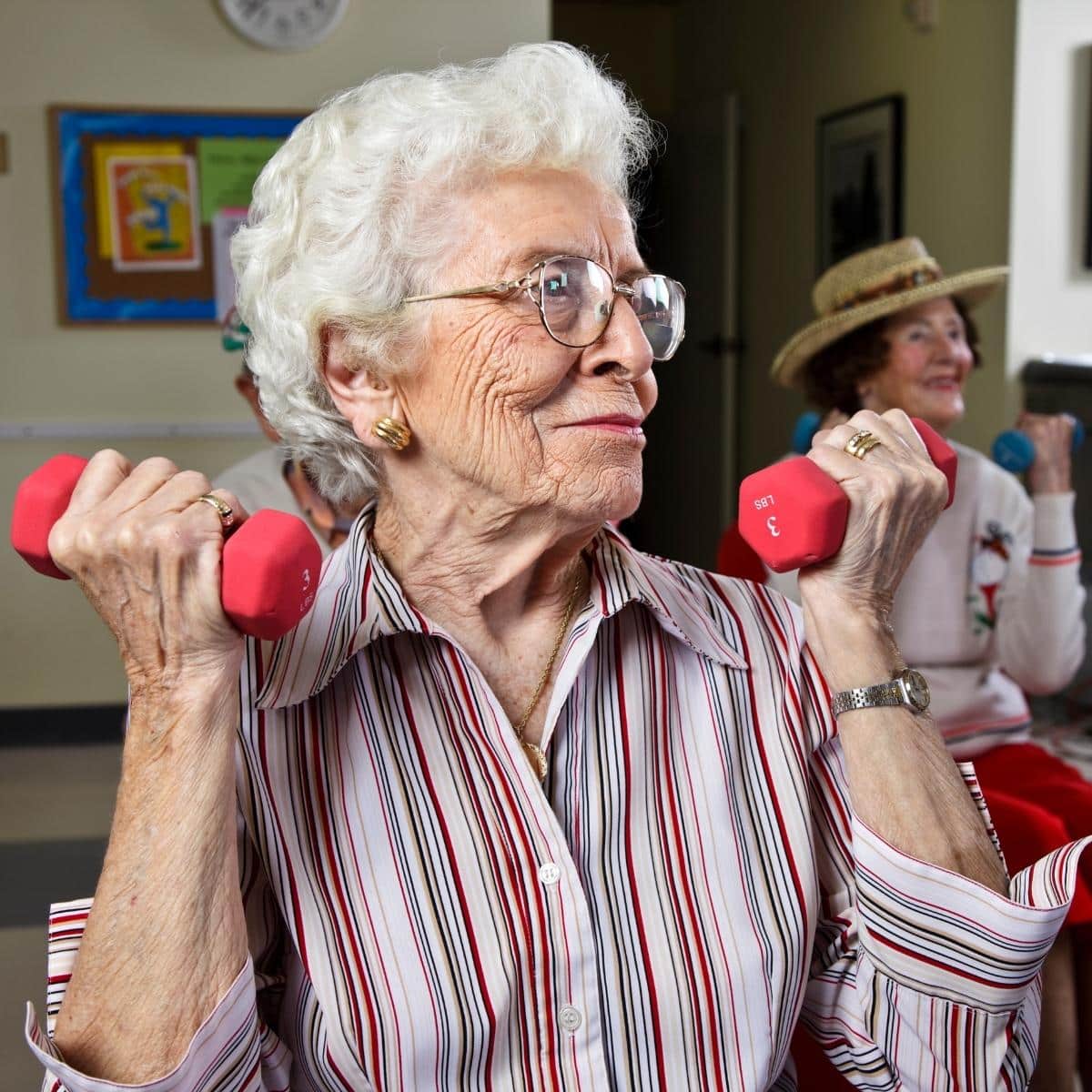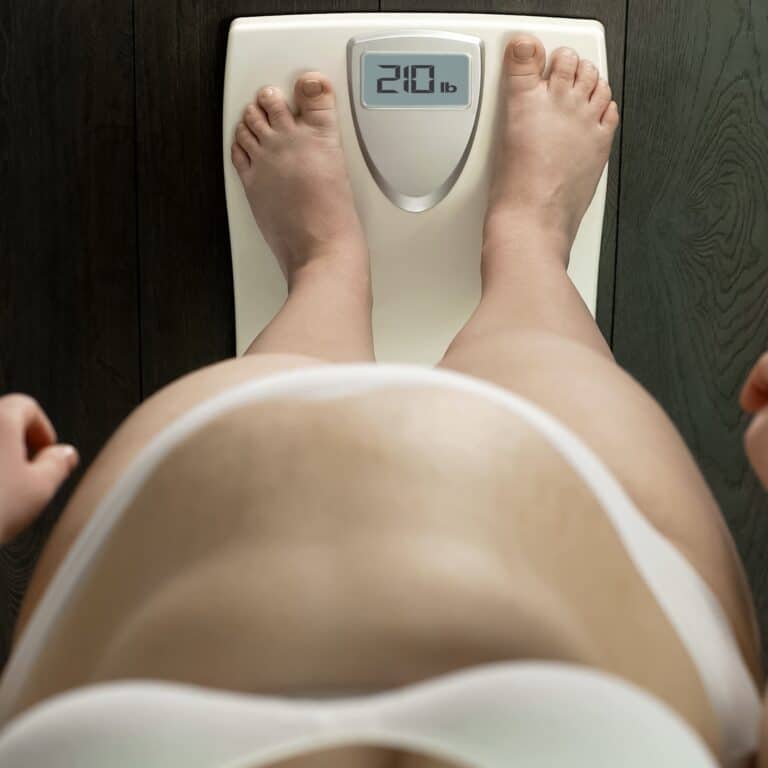Exercise Mistakes To Avoid With CKD
If you have chronic kidney disease (CKD), exercise is an essential part of maintaining a healthy lifestyle. Regular physical activity can help improve your overall health, reduce the risk of complications associated with CKD, and even slow kidney disease progression (ckd progression).
However, it is important to know how to exercise safely and avoid certain mistakes that could potentially harm you. In this article, we will discuss some common exercise mistakes to avoid if you have CKD, as well as provide tips for safe and effective exercising.
It is crucial to understand that not all exercises are suitable for individuals with CKD. Certain types of physical activities can put too much stress on your kidneys or exacerbate any existing health conditions you may have.
There are certain circumstances that should be avoided when exercising with CKD such as excessive heat exposure or dehydration.

By learning about these potential pitfalls and following safety guidelines, you can ensure that your exercise routine supports your overall health and well-being while minimizing risks. So, let's dive in and explore some key strategies for avoiding exercise mistakes when living with CKD.
Jump to:
- Key Takeaways
- Importance of Physical Fitness
- Exercise Mistakes to Avoid with CKD
- Consulting with a Doctor
- Planning an Exercise Program
- Types of Exercise
- Frequency and Intensity
- Avoiding Certain Circumstances
- Concerning Symptoms
- Exercising with a Partner
- Other Facts to Consider
- FAQs for Exercise Mistakes to Avoid with CKD
- Avoiding Mistakes When Exercising Is Essential For Kidney Patients
Key Takeaways
- Jumping into vigorous exercise should be avoided for CKD patients
- Avoid doing the same activities repeatedly to prevent boredom and potential injury
- Exercising after a large meal or before bedtime should be avoided
- CKD patients should avoid exercising during the hottest times of the day and take proper precautions to avoid serious issues.
For More Recipes and Ideas --->> Get Your Free Meals and Recipes That Are Perfect for Pre-Dialysis Diets, Pre-Dialysis with Diabetes, or Dialysis Diets.
Importance of Physical Fitness
Hey, did you know that physical fitness is super important for everyone, including those with kidney disease?
Regular exercise has many benefits, as it can improve energy levels, strength, blood pressure and even help manage symptoms of chronic kidney disease (CKD).
Here are some specific benefits of exercise that can help individuals with CKD:
- Improving endurance: Regular exercise improves cardiovascular health by lowering your risk of heart disease such as coronary artery disease, high cholesterol levels, as well as lowering your risks of heart attack. Exercise also helps increase the strength of your heart and lungs. This means you'll be able to do more activities without feeling tired or out of breath.
- Managing blood pressure: Exercise has been shown to lower blood pressure in CKD patients. High blood pressure is a common complication of CKD and can lead to further kidney damage if left untreated.
- Enhancing sleep quality: Exercise has been shown to improve the quality of sleep. A good night's rest is important for overall health as it allows your body time to repair and recharge.
- Boosting mood: Exercise releases endorphins, which can boost mood by reducing feelings of stress and anxiety. Individuals with CKD may experience depression due to the impact on their daily life, so regular exercise can be an important tool for improving mental well-being.
- Controlling body weight: Maintaining a healthy weight is important for people with CKD as being overweight or obese puts additional strain on the kidneys. Regular exercise combined with a healthy diet can help you with weight loss.
- Managing CKD symptoms: Exercise also plays a crucial role in managing chronic diseases such as CKD. By incorporating regular exercise into your routine, you may experience improvements in CKD symptoms such as muscle weakness and joint pain.
Incorporating regular physical activity into your routine may seem daunting at first, but starting slow and gradually building up your routine will have long-term benefits for the management of patients living with CKD.
Consultation with a doctor before starting any new exercise program is highly recommended to ensure safe participation based on individual needs and abilities while avoiding potential risks associated with certain exercises or activities that could harm one's well-being over time, especially when done improperly or carelessly without proper supervision from qualified healthcare professionals who know what they're doing.
Remember, taking care of yourself through physical fitness can have long-term benefits for both your physical and mental well-being.

Exercise Mistakes to Avoid with CKD
Jumping right into vigorous exercise.
Once you get your diagnosis of chronic kidney disease, you may feel the urge to sprint up and down your street in order to stay healthy. However, this can put you out of breath quickly, not to mention cause a great deal of pain and even an injury that could put you out of action for a while.
If you haven't been active much before learning you have CKD, you want to start slow. Do a 5-10 minute warm up before each exercise session, letting your body get used to the activity before ramping up the pace. Increase your exercise duration or intensity a little each week (every 3-4 sessions) so that you don't cause a great deal of shock to your body.
Doing the same activities over and over again.
Sure, being active at all is beneficial for your health. However, it's good to mix up your exercises to keep your body from getting too used to the movements. For example, you can do cardio (running, walking, or swimming) one day, then lightweight training the next. Alternating between activities also prevents boredom from setting in!
Forgetting to stretch after exercise.
Stretching after exercise has many benefits as it leads to better blood flow and helps with back pain. Start at the top of your body, stretching your neck, shoulders, and arms. Work your way down, stretching your waist, back, and legs. Make sure you are breathing deeply to get oxygen to your spent muscles.
Not being consistent with your exercise.
Being active on a sporadic basis isn't going to do much good if you are trying to manage your weight or blood pressure. You must have an exercise plan in place and follow through with it on a weekly basis.
Speak to your doctor about developing a plan that works for you and your stage of CKD and also takes into consideration other medical conditions that you may have.
Exercising during the worst times of the day.
When deciding the best time to work out, think about the rest of your schedule. You don't want to be active after a large meal or just before bedtime. If you are heading outdoors to exercise, avoid going during the hottest times of the day.
First thing in the morning is a good idea for many, so you can get it out of the way before you begin your day. Plus, it will be cooler during this time of day too!
While exercise is very beneficial to most chronic kidney disease patients, you need to make sure you aren't making any potentially dangerous mistakes when getting active. Have fun with your activities and make sure you are taking proper precautions to avoid any serious issues!
Consulting with a Doctor
It's essential to consult with a physician before starting any new physical activity program, as they can provide individualized recommendations and ensure safe participation based on unique needs and abilities.
Your doctor can help you determine the types of exercises that are best suited for your condition and level of fitness, as well as provide guidelines on how to gradually increase intensity and duration over time.
By consulting with your doctor, you can reduce the risks associated with exercise mistakes and ensure that you take appropriate precautions to avoid injury or other negative health outcomes.
Your doctor may also recommend modifications to your exercise routine based on any underlying health conditions or medications that could affect your ability to engage in physical activity safely.
By working together with your healthcare provider to develop an exercise plan tailored specifically to your needs, you can enjoy the many benefits of regular physical activity while minimizing potential risks.

Planning an Exercise Program
Consulting with a doctor before starting an exercise program can ensure that you create a personalized plan that will help you feel stronger, more energetic, and better equipped to manage the symptoms of CKD.
When planning your exercise program, it's essential to consider the type of exercise, length of time, frequency, and intensity. Choosing continuous activities that use large muscle groups like walking or cycling are good options. Incorporating low-level strength exercises may also be beneficial but avoid heavy lifting.
In addition to selecting your exercises carefully, it's important to set achievable goals for yourself and track your progress regularly. Aim for at least 30 minutes of exercise per session building up gradually with time. Exercise at least three days a week on non-consecutive days.
Start out slowly and warm up before increasing intensity and cooling down after each session. Do not forget the importance of rest days as well!
Engaging in consistent physical activity is key to improving your health outcomes over time while incorporating variety into your routine can prevent boredom and keep you motivated towards achieving long-term fitness goals.
Types of Exercise
When it comes to getting active with CKD, finding a type of exercise that suits your interests and abilities can be key to staying motivated and enjoying the process.
Each type of exercise has unique benefits. Aerobic exercise is the best type of exercise for the heart, but resistance training is also important for people with CKD to prevent muscle weakness and joint pain. Flexibility exercises prevent stiffness and increase mobility, while balance exercises help reduce the risk of falls.
It's recommended that CKD patients aim for at least 30 minutes per exercise session at least 3 days a week. Resistance training should be done using lighter weights or bands if necessary. Modifications can be made to accommodate any physical limitations or health concerns.
Appropriate equipment should also be used, such as comfortable shoes with good support for walking or running.
Monitoring progress is important when starting an exercise program. Keep track of how you feel during and after each workout, as well as any changes in symptoms or overall health.
Incorporating variety into your routine can also help keep things interesting and prevent boredom. Remember that exercising regularly can have many benefits for those with CKD, including increased energy, improved strength and mobility, better blood pressure levels control, and a lower risk of falling.
Frequency and Intensity
Now that you know the different types of exercise for people with CKD, let's discuss the frequency and intensity. It's important to start slowly and gradually increase the duration or intensity of your exercise program. A personalized approach is necessary, as each person's needs and abilities are different.
Here are three things to keep in mind when it comes to frequency and intensity:
- Gradual Progression: Start with a low level of exercise and gradually increase over time. This will help prevent injury or shock to the body.
- Personalized Approach: Work with your doctor to develop an exercise plan that fits your individual needs and abilities.
- Monitoring Progress and Adjusting Intensity: Monitor how your body responds to exercise, such as heart rate, blood pressure, fatigue levels, etc. Adjust the intensity accordingly to ensure safety during physical activity.
Remember to take safety precautions while exercising, such as warming up before starting any activity, stretching after finishing an activity, staying hydrated throughout the day, wearing appropriate clothing and footwear, avoiding extreme temperatures when possible (hot/cold), etc.
By following a safe approach with gradual progression and monitoring progress regularly with adjustments where necessary, you can help improve physical capacity without risking injury or complications from CKD symptoms like fatigue or joint pain (signs and symptoms of kidney failure).
Avoiding Certain Circumstances
To ensure your safety while improving physical capacity, it's important to be aware of certain circumstances when you shouldn’t exercise. If you're experiencing fatigue or joint pain, it's best to consult with your doctor before engaging in any exercise program.
They can help you adapt your routine to suit your physical limitations and avoid causing further harm. You should avoid exercising when you have a fever or when the weather is too hot and humid before consulting with your doctor.
Avoiding certain circumstances when exercising is crucial for CKD patients looking to improve their physical capacity safely. Consult with a healthcare professional if you're managing fatigue or experiencing joint pain, adapt your routine according to any physical limitations, and take extra precautions if pregnant.
Consider incorporating aquatic exercises into your routine for a low-impact workout that can provide many benefits for overall health.
Concerning Symptoms
It's important to pay attention to any concerning symptoms while engaging in physical activity, such as chest pain, difficulty breathing or leg cramps that prevent future exercise sessions. Managing these symptoms is critical for individuals with CKD, as they may be more prone to experiencing them due to their condition. Exercise modifications may be necessary depending on the severity of the symptom, such as reducing intensity or duration.
Monitoring progress during exercise is also essential for individuals with CKD. Keeping track of how you feel during and after an exercise session can help determine if adjustments need to be made in intensity or frequency. If symptoms persist or worsen despite making modifications, it's important to seek medical attention from a healthcare provider who understands your specific needs and limitations.
Adjusting the intensity of physical activity is another way to manage concerning symptoms. Gradual increases in intensity can help build endurance and strength over time without causing undue stress on the body (how to reduce stress naturally). It's crucial not to push yourself too hard, especially when just starting an exercise program. By taking things slow and listening to your body, you can ensure that you're getting the most out of your workout while staying safe and healthy.
Exercising with a Partner
Partnering up with someone can make working out more enjoyable and help provide motivation to stick with a regular exercise routine. Here are some partner benefits, motivation tactics, communication strategies, workout variations, and fun activities to consider when exercising with a partner:
- Partner Benefits: Working out with a partner can provide accountability and encouragement. It can also make exercising more social and increase the enjoyment of physical activity.
- Motivation Tactics: Set achievable goals together, celebrate progress, and encourage each other during workouts. Consider creating friendly competitions or challenges to keep things interesting.
- Communication Strategies: Openly communicate about fitness goals, concerns, and schedules to ensure both partners are on the same page. Provide feedback that's constructive and helpful.
- Workout Variations & Fun Activities: Mix up your workouts by trying new exercises or activities such as hiking, dancing, or yoga classes together. This will keep things fun while challenging your body in new ways.
Overall, partnering up with someone for exercise has many benefits including increased motivation and enjoyment of physical activity. By setting achievable goals together, communicating openly about fitness goals and concerns, trying new workout variations, and fun activities, you can stay motivated while having fun!
Other Facts to Consider
Considering other factors, staying physically fit can help CKD patients with necessary tasks and still have energy for other activities. However, there are some exercise misconceptions that may prevent CKD patients from reaping the full benefits of physical activity.
One common misconception is that exercise puts too much strain on already weakened muscles and bones. In reality, regular exercise can actually improve muscle and bone health in people with CKD.
Another important aspect of exercise that is often overlooked is its impact on mental health. Exercise has been shown to improve mood and reduce symptoms of depression and anxiety in people with chronic illnesses like CKD. Additionally, regular physical activity can help alleviate symptoms of fatigue commonly experienced by CKD patients.
Motivation for exercise can sometimes be challenging for anyone, but especially for those living with a chronic illness. It's important to remember that there are many different types of exercises available, so finding something you enjoy doing is key. Proper nutrition plays a crucial role in supporting an active lifestyle. Eating a special diet designed for kidney patients can provide the fuel your body for exercise without compromising your safety.
By incorporating regular exercise into your routine and making healthy food choices, you can take control of your health and improve your overall well-being as a person living with CKD.
| Exercise Misconceptions | Facts |
| Exercise puts too much strain on weakened muscles/bones | Regular exercise improves muscle/bone health in people with CKD |
| Exercise does not benefit mental health | Exercise improves mood/reduces symptoms of depression/anxiety |
| Motivation for exercise is difficult | Finding enjoyable activities & proper nutrition supports an active lifestyle |
FAQs for Exercise Mistakes to Avoid with CKD
As a CKD patient, it's important to choose low impact exercise options that won't put undue stress on your cardiovascular system. Avoid exercises that involve high intensity or sudden movements, as well as those that require heavy lifting.
Additionally, take precautions by incorporating strength training modifications such as using lighter weights or resistance bands. Flexibility exercises, such as yoga and stretching, can also be beneficial for improving mobility and reducing the risk of injury.
Remember to always consult with your doctor before beginning any exercise program and monitor for any cardiovascular risks during activity.
Exercise benefits people with CKD by improving their physical function, energy levels, and blood pressure control. However, it is important to consult with a doctor before starting an exercise program and to take precautions to avoid worsening symptoms.
Gradually increasing exercise frequency and intensity, choosing recommended activities, taking breaks when feeling tired or short of breath, and staying hydrated are all important measures to take. It is also important to avoid exercising during times of illness or after changes in medication schedules.
Consistency is key for reaping the benefits of exercise for CKD patients, but it should be done with caution and proper guidance from healthcare professionals.
When exercising with CKD, it's important to follow certain dietary restrictions and recommendations. Recommended foods include lean proteins, fruits, vegetables, whole grains, and low-fat dairy products.
People with CKD often need to limit their protein intake, as excessive protein can put strain on the kidneys. However, protein is still important for muscle repair and during recovery.
It is recommended to consume moderate amounts of high-quality protein sources, such as lean meats, fish, and poultry. However, you should avoid protein supplements like protein powders, shakes, and protein bars unless they have been approved by your doctor or dietitian.
Hydration is also crucial, as dehydration can worsen kidney function. It's recommended to drink water before, during, and after exercise. However, you may have to avoid excess fluids with advanced kidney disease. You should also avoid sports drinks as they contain sodium and potassium.
Supplements may be necessary for some individuals with CKD to ensure they're getting enough nutrients. Timing considerations should also be taken into account, it's best to wait at least an hour after a meal before exercising and avoid exercising close to bedtime.
Pre-workout snacks should consist of easily digestible carbohydrates such as fruit or crackers. Consult with a doctor or dietitian for personalized recommendations based on individual needs and preferences.
Regular exercise is important for people with kidney disease as it can improve energy levels, increase strength, lower the risk of falls, and improve blood sugars and blood pressure (high blood pressure and kidney disease).
The benefits timeline for a regular exercise program varies from person to person depending on the individual's health status and exercise frequency and intensity levels. It typically takes a period of time between several weeks to months to see significant improvements in health.
It's important to consult with a doctor before starting an exercise program and develop personalized routines with medical supervision. Starting slowly and gradually increasing intensity levels while avoiding overexertion is crucial for preventing injury or complications.
With consistent effort, CKD patients can experience improved physical function and overall quality of life through regular exercise.
When considering team sports or high-impact activities with CKD, it's important to conduct a thorough risk assessment and consult with your healthcare team.
Modifications to equipment may be necessary, such as wearing protective gear or using appropriate footwear. Gradual progression is key, starting at a low intensity and gradually increasing over time.
Hydration management is also crucial during exercise, as dehydration can exacerbate kidney function issues. Communication with your healthcare team is essential for monitoring any potential changes in your condition and adjusting your exercise plan accordingly. While these activities can be enjoyable, safety should always come first for those with CKD.
Avoiding Mistakes When Exercising Is Essential For Kidney Patients
Congratulations! You've learned about the importance of exercise for those with chronic kidney disease (CKD) and common exercise mistakes to avoid. It's important to consult with your doctor before starting any new exercise program and to plan an appropriate routine based on your individual needs.
Always choose exercises that are low-impact and avoid certain circumstances such as exercising in extreme temperatures. Be aware of concerning symptoms such as chest pain or shortness of breath, and consider exercising with a partner for added safety.
To reap the benefits of exercise while avoiding potential harm, follow these guidelines. By safely incorporating physical activity into your daily routine, you can keep your kidney healthy and improve your overall health and wellbeing.
Remember that physical fitness is crucial for maintaining a healthy lifestyle, particularly if you have CKD. Regular exercise can help manage CKD symptoms, reduce the risk of complications associated with the disease, and improve quality of life. So get moving today!















